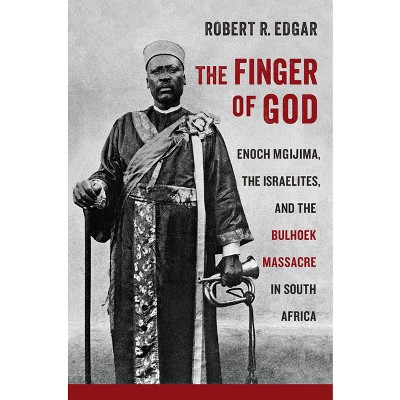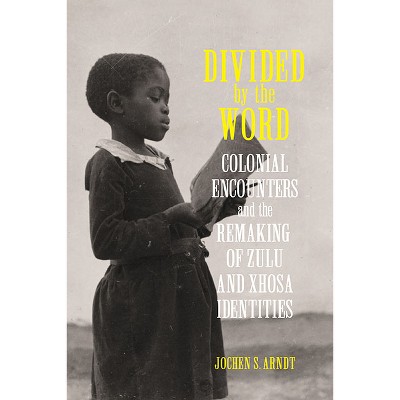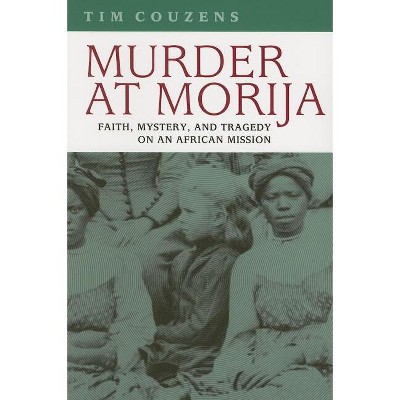Blood from Your Children - (Reconsiderations in Southern African History) by Benedict Carton (Paperback)

About this item
Highlights
- The young black activists whose rejection of their parents' complacency led to the 1976 Soweto uprising and the eventual demise of apartheid are part of a long tradition of generational conflict in South Africa.
- About the Author: Benedict Carton, the recipient of numerous grants and awards for his research on South Africa, is Assistant Professor of History at George Mason University.
- 215 Pages
- History, Africa
- Series Name: Reconsiderations in Southern African History
Description
About the Book
Through his lively and thorough presentation of the forces at work in Bambatha's Rebellion, Benedict Carton brings a fresh understanding to the tragic role of defiant youth and generational rivalry in African resistance.Book Synopsis
The young black activists whose rejection of their parents' complacency led to the 1976 Soweto uprising and the eventual demise of apartheid are part of a long tradition of generational conflict in South Africa. In Blood from Your Children, Benedict Carton traces this intense challenge to an extraordinary and pivotal episode a century ago that bitterly divided families along generational lines.
Facing a series of ecological disasters that crippled agriculture in the 1890s, African youths in colonial Natal and Zululand perceived their fathers' struggle to meet increased colonial demands as an act of betrayal. Young people engaged more frequently in premarital sex, while young men sparked widespread gang fights, and young women rejected traditional filial and marital obligations. In 1906, after the imposition of an onerous head tax on young men, this domestic turmoil exploded into an armed uprising known as Bambatha's Rebellion. The young men sought revenge by attacking both the African patriarchs whose apparent accomodation they considered traitorous and the colonial troops dispatched to quell the violence. After the Natal forces crushed the insurrection, some captured rebels faced trial for treason under martial law. Often, their fathers testified against them.
While the military intervention eventually caused many more African youths to seek work in the mines, thus defusing generational turmoil, others moved to industrial centers in the wake of the uprising. These young people formed the vanguard of insurgent political groups that continue to play an important role in South African urban life.
Through his lively and thorough presentation of the forces at work in Bambatha's Rebellion, Benedict Carton brings a fresh understanding to the tragic role of defiant youth and generational rivalry in African resistance.
Review Quotes
Blood from Your Children is a carefully researched, well-balanced, and frequently gripping account of a key episode in South African history. There are moments in the narrative, particularly in the citing of African oral testimony or court evidence, where individual phrases create a shock of recognition where one feels the argument ringing absolutely true.
--Philip Bonner, University of the Witwatersrand"Benedict Carton writes history with a rare mixture of passion and precision. His colorful narrative of the war of the heads records a generational conflict that reminds us once again that past is prologue in Africa as elsewhere." --Richard Stengel, Senior Editor, Time Magazine and collaborator with Nelson Mandela on Long Walk to Freedom
--Richard Stengell, Senior editor, Time, collaborator with Nelson Mandela on Long Walk to FreedomMore than anything I've read in recent years, this book sees generational conflict not as an explanation, but as a set of practices--and reactions against those practices--that constituted every household, every herd, and every labor contract in Zululand. Carton doesn't underestimate the impact of British domination, however; he has understood African actions--most notably the Bhambatha Rebellion--as struggling against two patriarchies, rather than resisting one foreign one.
--Luise White, University of FloridaThe South African revolution of the nineties was--and is--unambiguously predicated on the energy of an overwhelmingly youthful black population that has been at increasing odds with its elders ever since the onset of primary industrialisation in the late nineteenth century. Benedict Carton's astute insights into the origins and trajectories of these painful generational writhings are rendered accessible through the fluent prose that makes this book an absolute analytical and narrative delight.
--Charles van Onselen, author of The Seed Is MineAbout the Author
Benedict Carton, the recipient of numerous grants and awards for his research on South Africa, is Assistant Professor of History at George Mason University.











